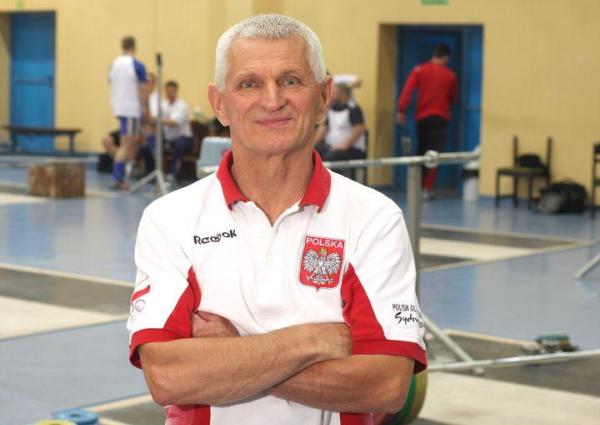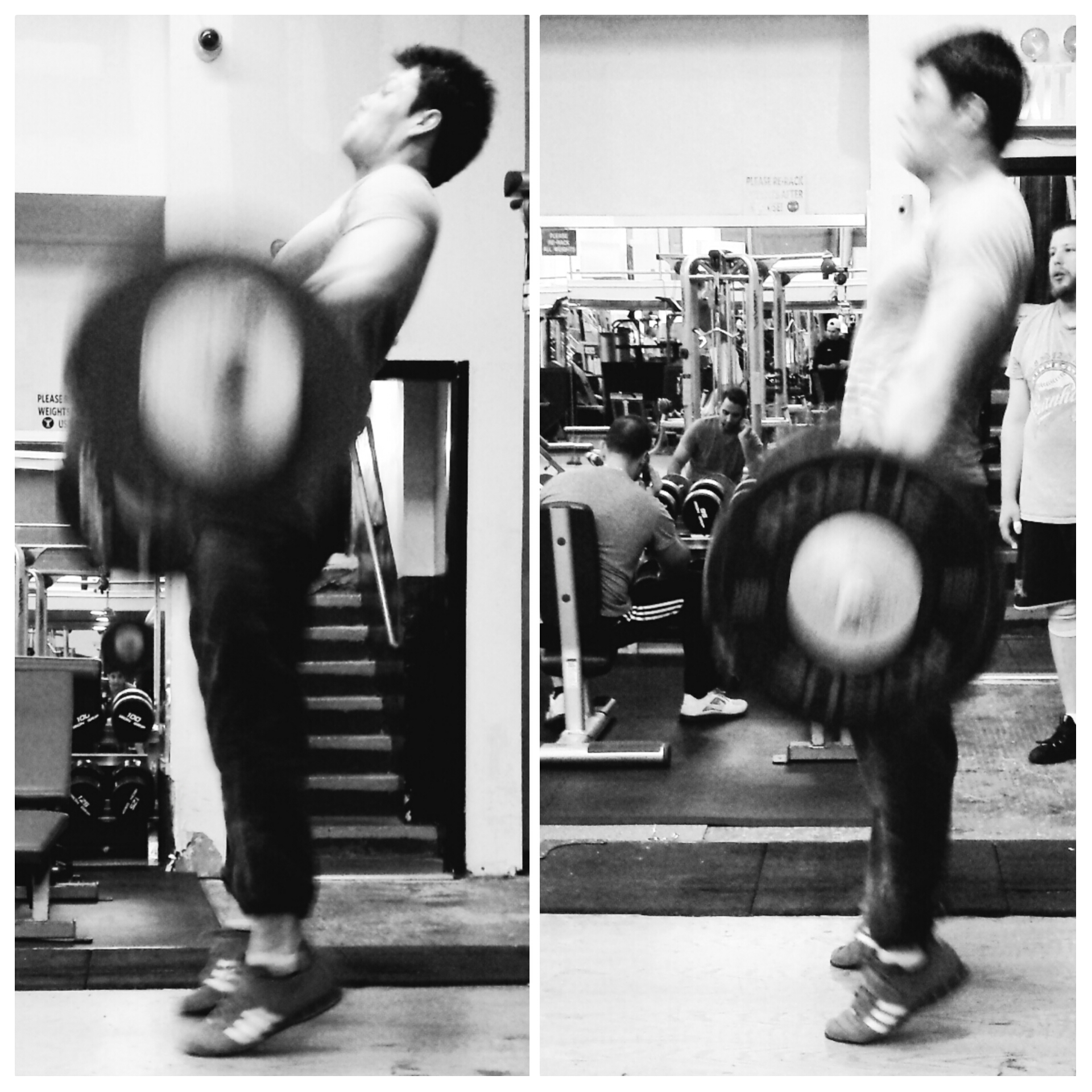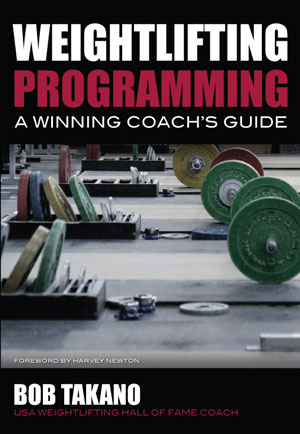 I believe selecting a qualified coach is key to the development of any athlete. In a rapidly growing sport like Olympic weightlifting, this can be a difficult task as there isn’t too much quantifiable data other than results but even then those have many variables. Take for instance “Coach A” works at a high school vs “Coach B” who’s a police officer and volunteers his time to coach weightlifters. “Coach A” will have a lot more weightlifters coming out of his gym and therefore have a greater chance of landing a top level athlete. Does that make Coach B any worse? Of course not, this is why I believe it’s important to talk to the coach discuss with them how they coach, their philosophy, and then see how you, the coach, and the club mesh together.
I believe selecting a qualified coach is key to the development of any athlete. In a rapidly growing sport like Olympic weightlifting, this can be a difficult task as there isn’t too much quantifiable data other than results but even then those have many variables. Take for instance “Coach A” works at a high school vs “Coach B” who’s a police officer and volunteers his time to coach weightlifters. “Coach A” will have a lot more weightlifters coming out of his gym and therefore have a greater chance of landing a top level athlete. Does that make Coach B any worse? Of course not, this is why I believe it’s important to talk to the coach discuss with them how they coach, their philosophy, and then see how you, the coach, and the club mesh together.
Once you go through those steps you should FIRST see if the coach actually coaches. Sounds weird, but surprisingly some “coaches” actually don’t coach but just follow another weightlifters program and just scream nonsensical BS = “big chest, BIG chest, BIG CHEST!”. For some clubs that maybe ok, as it’s just a group of guys lifting together but I wouldn’t consider any of that coaching.
Moving forward, below are a few basic attributes I believe all qualified weightlifting coach should have:
Technical Analysis

Right: bar is in a good tight position for a strong 2nd and 3rd pull.
Any coach (weightlifting, football, track, etc…) should be able to analyze their specific sport movement and break it down. Take for instance basketball, the coaches breakdown film and stats to analyze the common trends of some players. In track the coach will analyze ground contact times, foot contact position, body (shin, torso, femur etc…) angle, to assess if they athlete is running efficiently. This is all the same with Olympic weightlifting, the coach should be able to analyze the movement (clean, snatch, jerk, squat, pull etc…), figure out what needs to be fixed, and communicate the issue clearly and simply to the weightlifter.
In my opinion this is probably one of the most important attributes a weightlifting coach must have. Since most clubs will be dealing with amateur and novice weightlifters, building a strong foundation in positioning and technique will be crucial to the overall development of the weightlifter. Once they progress they can move into a higher classification, for the US weightlifters I would say most will move onto train at the OTC.
Programming
A good coach can program but a great coach can adapt the program to the lifter. I can have a well thought out 12 week program that has the lifter peaking at week 13 but if the weightlifter isn’t moving the bar as well as I would’ve liked, has had trouble sleeping, was sick etc… through the 12 week process, I need to adapt the program accordingly. A qualified weightlifting coach also ensures that the program is executed correctly, from max weight chosen, to basic programming terminology (3+, hangs, (3×3)4, etc…), tempo, etc…
While programming is an important aspect in the development of a weightlifter, I believe that too many emphasize the importance of a program over a coach. Most coaches will have a general outline for the programs focus and then adjust the workout based on how the weightlifter is feeling and moving that day.
Handler – Competition
*Darrel Barnes *62kg crushing 150kg
Another aspect of a qualified weightlifting coach is being able to handle the lifter during competitions. Keep in mind that I’m not talking about handling a weightlifters nervousness, even though that is an aspect of coaching which the coach should’ve prepared the lifter for. What I am talking about is prepping the lifter before their first attempt. This means that the coach needs to understand how to read the attempt cards, estimate when the lifter will take their first attempt, and pace their warm ups accordingly. Move too fast and the lifter can get cold pretty quickly, move too slow and the lifter may not be as well prepared to take their first attempt.
Coaching
The weightlifting coach should also be able to Coach. I know it sounds weird but let me explain, the process of developing a weightlifter isn’t just the physical aspect but also the emotional and mental. This can mean developing the weightlifter to commit to the bar despite the bar feeling “heavy”, it can mean when the lifter has had a tough day at work or school and needs to get in their training session, or even simple team camaraderie- making sure the vets are cheering on a novice lifter etc… Each club and lifter will have different needs, this is where the experience of a weightlifting coach is crucial. Coach K does this very well:
“Krzyzewski recognizes what is far too frequently ignored in organizations that force people to conform to certain molds, work on fixing people’s weaknesses rather than focusing on their strengths, and expect a strategy to work even if it doesn’t leverage the best in its people. A hallmark of Krzyzewski’s approach is that he shifts his system each year to his players, rather than shoe-horning his players into his systems. When neither of his two recent co-captains, Kyle Singler and Nolan Smith, were very good at confronting other players, for example, Krzyzewski didn’t force the issue. “As a staff, we had to do more confrontation because the two guys we had, it didn’t fit their wheelhouse. I try to adjust my leadership based on who I have to help me lead the team.”
*from the Washington post link HERE
This is why he has developed a successful program.
The video above is a great example of our team not quitting. The lifters could’ve quit, they could’ve let the failed attempt and weight get to their heads, but they didn’t! After a quick pep talk and one or two cues to focus on, they went right back and and nailed the weight. This is why I love coaching!
In the end, I believe having a good coach and teammates by your side out weighs online coaching or “the best Olympic weightlifting program”. So If you’re truly committed to becoming an Olympic weightlifter and not interesting in this sport because it’s become a “fad”, do yourself a favor and find a quality Olympic weightlifting coach.
Stay strong,


